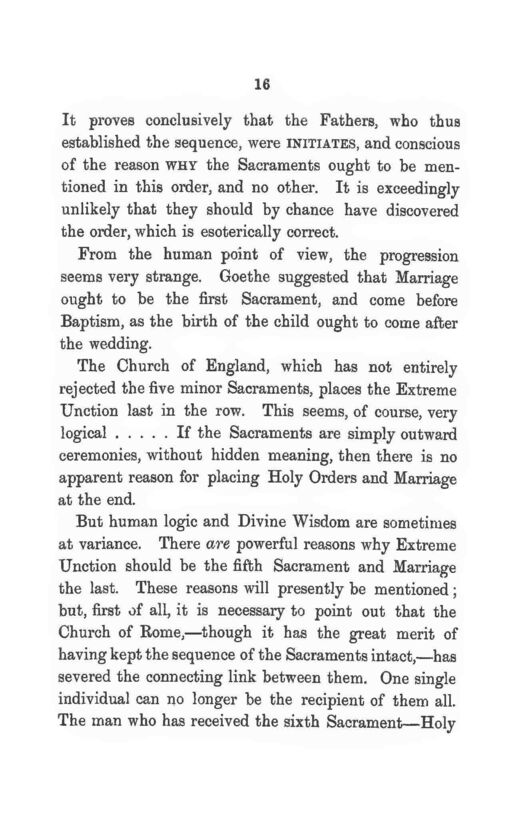
Full resolution (JPEG) - On this page / på denna sida - Sidor ...

<< prev. page << föreg. sida << >> nästa sida >> next page >>
Below is the raw OCR text
from the above scanned image.
Do you see an error? Proofread the page now!
Här nedan syns maskintolkade texten från faksimilbilden ovan.
Ser du något fel? Korrekturläs sidan nu!
This page has never been proofread. / Denna sida har aldrig korrekturlästs.
16
It proves conclusively that the Fathers, who thus
established the sequence, were initiates, and conscious
of the reason why the Sacraments ought to be men-
tioned in this order, and no other. It is exceedingly
unlikely that they should by chance have discovered
the order, which is esoterically correct.
From the human point of view, the progression
seems very strange. Goethe suggested that Marriage
ought to be the first Sacrament, and come before
Baptism, as the birth of the child ought to come after
the wedding.
The Church of England, which has not entirely
rejected the five minor Sacraments, places the Extreme
Unction last in the row. This seems, of course, very
logical If the Sacraments are simply outward
ceremonies, without hidden meaning, then there is no
apparent reason for placing Holy Orders and Marriage
at the end.
But human logic and Divine Wisdom are sometimes
at variance. There are powerful reasons why Extreme
Unction should be the fifth Sacrament and Marriage
the last. These reasons will presently be mentioned
but, first of all, it is necessary to point out that the
Church of Kome,—though it has the great merit of
having kept the sequence of the Sacraments intact,—has
severed the connecting link between them. One single
individual can no longer be the recipient of them all.
The man who has received the sixth Sacrament—Holy
<< prev. page << föreg. sida << >> nästa sida >> next page >>